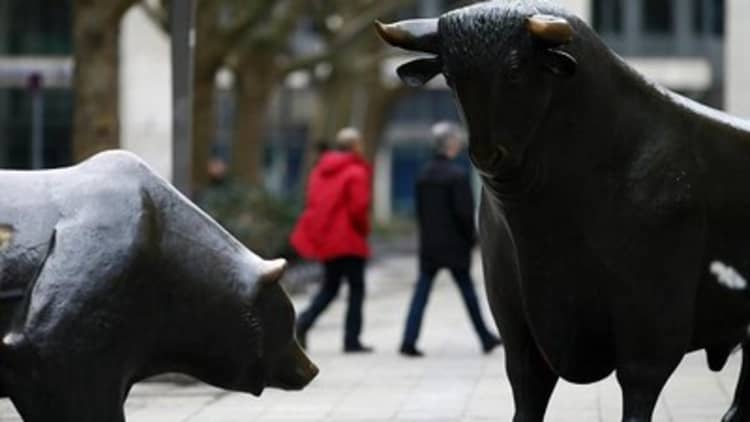
U.S. markets are six years into a 20-year bull market, Brian Belski, chief investment strategist at BMO Capital Markets, told CNBC on Monday.
"It's the biggest stealth bull market of my 20-year career. Nobody believes it and we're not there yet," Belski said in an interview on "Squawk Box."
Belski projected North America will continue to drive growth and said in the next five years, we'll transition into a period of flat multiples with growing revenues and earnings as business comes back to the U.S.
Read More Global business confidence plunges to post-crisis low
During that five-year period, emerging markets will have time to take down their capacity and deal with the transition from a demand-led to a supply-led economy, he added. Belski then sees the onset of a credit creation cycle in three to four years.
Investors will find themselves in a buy-the-dip situation, he said, because U.S. stocks and companies have become pristine assets following "massive structural changes that have gone through in the last 15 years."
"We've become ultra conservative, we've over-corrected, we've rebuilt our balance sheets, and earnings in America are the most stable asset in the world," he said. "Now we're going to take that stability and grow from that."
JPMorgan Chase Chief Economist Bruce Kasman said the near-term growth story is positive, but the supply-side story is terrible.
Read More Disconnected: Millennials talk big, do little about money
"If we're talking about a 20-year bull market, the weakness in labor supply, the weakness in investment and innovation going on in the U.S. is the real threat we have to worry about in terms of that broader story," he told "Squawk Box."
Belski said the United States needs to see wages go up and to offer incentives for companies to retrain the labor force and bring capacity back.
In the meantime, he sees money coming back into the equities market slowly as credibility for stocks grows.
He said that will happen as investors see positive returns, but more importantly, as those who poured money into fixed income start to lose money and feel the pain that equity investors felt during the crisis. That is when more rotation will begin, he said.


